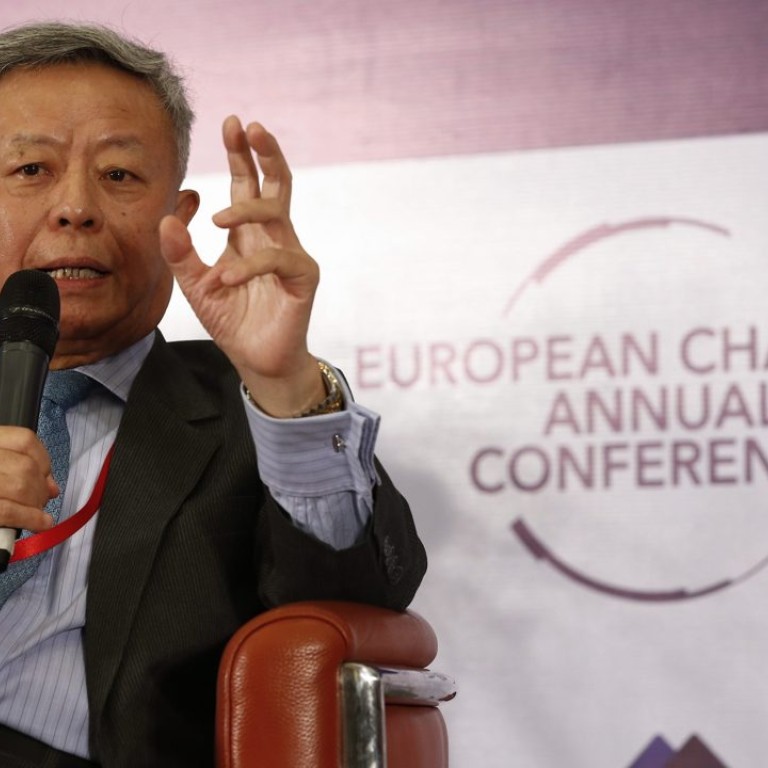
China-led Asian Infrastructure Investment Bank just months away from first loan
After its legal formation on Christmas Day, the China-led bank is now setting up its house rules and seeking candidates for most important jobs
With a new English-only website launched and 23 job openings announced on the same day, the China-led Asian Infrastructure Investment Bank is gearing up for business.
The US$100 billion lender, an institution widely seen as a means for Beijing to extend its regional influence, will make its first loan by the middle of 2016, the bank’s president-designate, Jin Liqun (金立群), said.
In the meantime, the bank will set up house rules and find people to fill its most important jobs.
The AIIB would lend to projects involved in energy and power, transport and telecoms, rural infrastructure, water supply, environment protection and logistics, Jin told Xinhua. It was still pondering whether to finance coal-powered or nuclear plants.
“China is very proactive on the AIIB,” said Shi Yinhong, a professor of international relations at Renmin University. “With support from President Xi Jinping (習近平) and Beijing’s deep pockets, China is more active than anyone else in making the AIIB function.”
The bank is a diplomatic triumph for Beijing.
Xi first raised the idea of a regional infrastructure investment bank in late 2013, and it initially had a slow start with only a group of small Asian nations showing interest. Indifference from the US and Japan towards the proposed bank made it its prospects less hopeful.
However, the situation turned around early this year when Britain surprised the US by signing up. Other European nations followed suit. In the end, the AIIB attracted 57 founding members, including Australia, France, Germany and South Africa.
While the AIIB is often taken as a challenge to the World Bank and Asian Development Bank, China has repeatedly pledged that it would be a partner and supplement existing institutions.
At the same time, China is trying to avoid making it a bureaucratic agency.
“AIIB is standing on top of the shoulders of the World Bank and ADB – China can learn from their strengths and weaknesses,” said Song Guoyou, a deputy director of the Centre for American Studies at Fudan University in Shanghai. “It is a new multilateral organisation, and it should be better [than existing ones]”.
For example, the AIIB would not have a resident board of directors for the sake of efficiency and cost control, Jin said. In other words, directors would not have an office at the AIIB’s Beijing office. They would meet quarterly, by video conference if needed, Jin said.
It would hire “ethical, professional and passionate people” but not offer an “iron rice bowl”, or permanent job security.
On its legal formation on Christmas Day, the AIIB announced 23 positions on its website, including “senior specialists” in banking, environment and social development as well as experts in procurement, treasury and budget management.
A senior environment specialist candidate, for example, would need a minimum of eight to 10 years of relevant experience and must be willing to “spend significant time making site visits, often to remote locations”.
Candidates would need to apply for the positions before January 8, while the application period for 15 senior posts of vice-president and director-generals had closed.
Song, from Fudan University, said Jin “hates bureaucracy” and was determined to eradicate “a rich man’s disease” from the bank.
But the real challenge for the bank would come from actual business, Song said.
“The first loan deal is crucial,” said Song. “If the first shot is loud and beautiful, it can pave the way for future successes. But it will be very awkward if the first project disappoints.”

